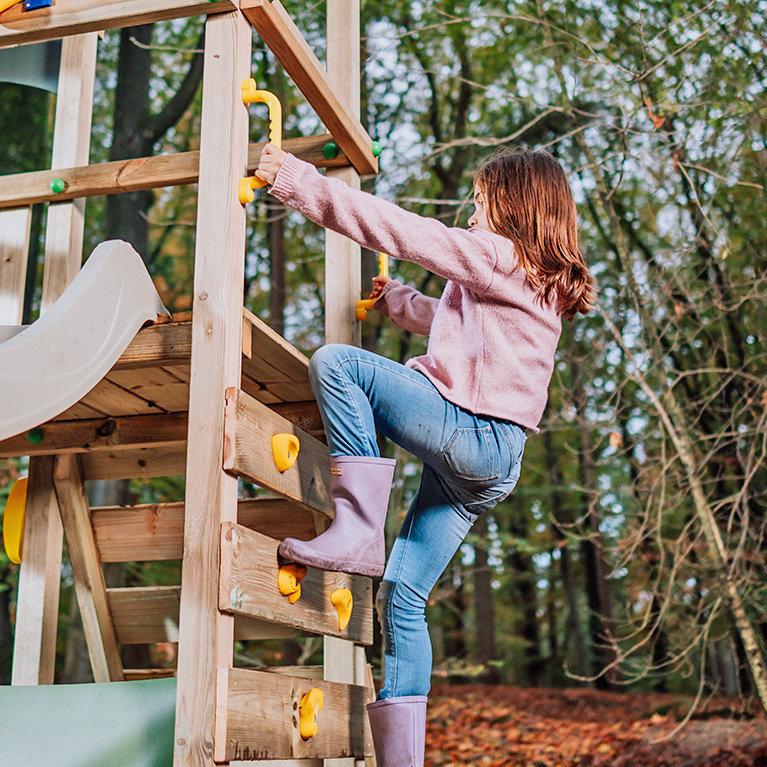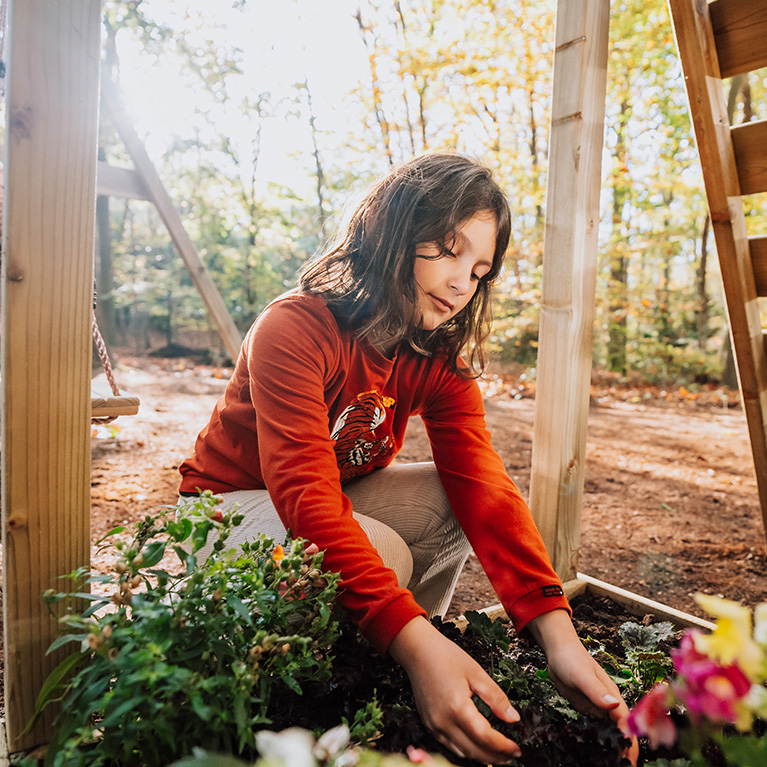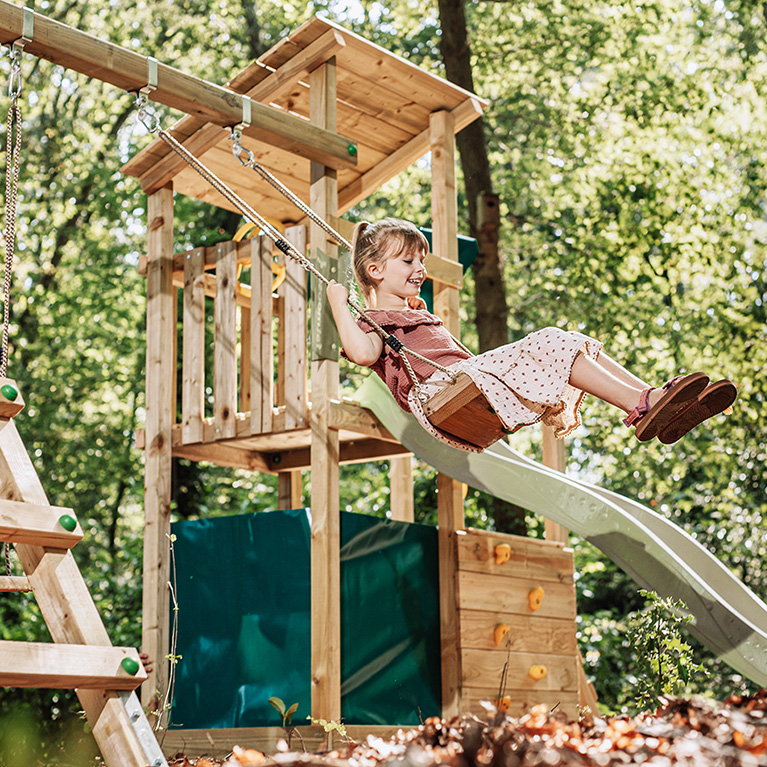Big skills in small moments: how outdoor play supports motoric skills
Big skills in small moments: how outdoor play supports motoric skills
When children play outside, they’re not just having fun, they’re building the foundation for important physical and cognitive skills. Whether they’re climbing, sliding, swinging, or balancing, these activities all contribute to the development of both gross and fine motor skills. Understanding how these skills develop can help parents make more intentional choices when it comes to play, and appreciate just how valuable outdoor movement really is.
Gross motor skills: strength in motion
Gross motor skills are the skills that allow children to run, jump, balance, and climb with confidence. Outdoor environments (especially those that invite active movement) are ideal for developing these abilities. For example, climbing structures require children to coordinate arms and legs, build core strength, and maintain balance. These actions support not only physical health, but also spatial awareness and body control. A thoughtfully designed climbing frame can encourage this kind of movement by offering multiple access points and challenges at different levels: from climbing walls to ladders and bridges.

Fine motor skills: precision through play
Fine motor skills focus on the small, precise movements of hands and fingers. These are essential for tasks like writing, buttoning a coat, or tying shoes. While it may not be immediately obvious, outdoor play can support fine motor development in powerful ways. Gripping ropes, holding onto swing chains, balancing small objects during imaginative play: these moments train hand strength, coordination, and agility in a natural and engaging setting. Activities like building with outdoor materials, drawing with chalk, or navigating narrow spaces on a play structure all encourage controlled, purposeful movement.

The value of everyday movement
In a world where structured schedules and screen time are increasingly common, outdoor play offers something different: freedom to learn, explore and play. And through that freedom, children develop not just physical skills, but also confidence, problem-solving ability, and emotional regulation. A recent study from Finland followed more than 600 children between the ages of 3 and 8. It found that just 30 minutes of outdoor play after childcare each day predicted significantly improved motor competence three years later, particularly in girls. The same study also found that participating in two or more sports alongside outdoor play further enhanced motor skill development across all children. This suggests that a combination of free play and structured activity creates the most supportive environment for physical growth.
Providing children with a dedicated outdoor space creates daily opportunities for meaningful movement. Want to see all possibilities? Check out our fatmoose assortment to see what fits your family and backyard!


















